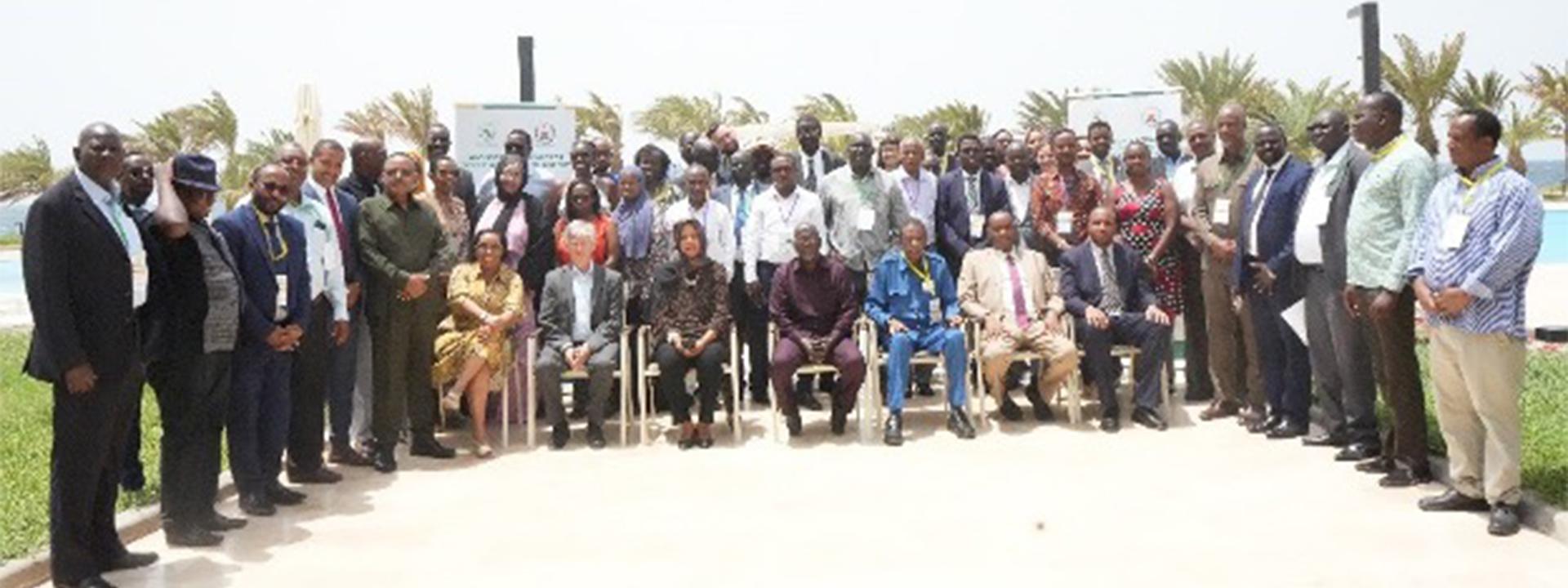August 29, 2023 (TADJOURAH, Djibouti): The Intergovernmental Authority on Development (IGAD), in collaboration with Swiss Development Cooperation and GIZ (Gesellschaft fuer Internationale Zusammenarbeit) has opened its Regional Consultation Process meeting on Migration, to provide a platform for Government officials and other stakeholders from the IGAD Region to share the experiences and expertise on human mobility in the context of disasters and climate change.
The two – day Regional Dialogue has held under the theme “Human Mobility in the Context of Disasters and Climate Change.”
Speaking on behalf of the IGAD Executive Secretary Dr Workneh Gebeyehu, Madam Fathia Alwan, Director for Health and Social Development Division explained that IGAD and partners have developed several projects on human mobility, disasters and climate change.
Moreover, she expressed that People displaced by disasters and climate change can be particularly vulnerable to rights violations, including through lack of access to essential documentation, security, community life, education, and other basic amenities.
“For many of you, I am aware that this was your first time to visit this part of Djibouti and the Region. This region is the busiest migrants’ corridor in East and Horn of Africa. “She added
In his opening remarks, Col. Abdulqadr Ibrahim Gona, representative of the Government of Djibouti and IGAD Chair disclosed that the Republic of Djibouti plays a crucial role in geopolitics, climate and environmental diplomacy under the far-sighted policy of President Ismaïl Omar Guelleh, current President of IGAD.
“I would like to express my sincere congratulations to IGAD for their constant efforts to achieve regional integration of the igad countries in the field of free trade of people and goods and good governance of migration.” He stressed.
On behalf of GIZ, Team Leader of Strengthening IGAD’s Migration Policy Implementation (SIMPI) Mrs. Kokebe Hailegabriel, stated that the Giz linking prediction of weather forecasts to human mobility patterns caused by slow and sudden onset disasters through the modeling developed by GIZ Global Project Human Mobility in the Context of Climate Change and the MPTF projects are an important step towards widening the evidence base.
“There is still a lot of work ahead of us, and I am happy that we are embarking on developing a new project with IGAD on behalf of the German Federal Ministry of Economic Development and Cooperation on Human Mobility in the Context of Disasters on Climate Change.” She noted
Prof. Walter Kaelin, Envoy of the Chair of Platform on disaster displacement on his part said that Human mobility in the context of disasters and climate change is a huge challenge.
“This will provide us with a lot of opportunities to work together on the challenges faced by your region.” He added.
In his remarks, Dr Abdi Hersi Senior regional policy and Liaison officer, IOM-UN Migrating expressed that IOM Commends the efforts of Members States and IGAD to strengthen the institutional capacities through a whole-of-government and a whole-of society approaches in addressing human mobility in the context of disasters and climate change.
“I reiterate the commitment of IOM in supporting IGAD and members states in collaboration with donors and partners to effectively promote coherent policy development and encourage policy dialogue on challenges and opportunities related to climate migration.” He highlighted.
Participants of the meeting drawn from IGAD Member states, representative of the Government of Djibouti and IGAD Chair, related partners EU, GIZ, IOM, The Platform on Disaster Displacement and ILO as well as IGAD Secretariat.
At the end the meeting resulted in providing recommendations to member states, partners and IGAD.
In 2017, the IGAD RCP focused on this topic and participants discussed for the first-time existing policy and protection gaps related to climate change and human mobility in the IGAD region.

